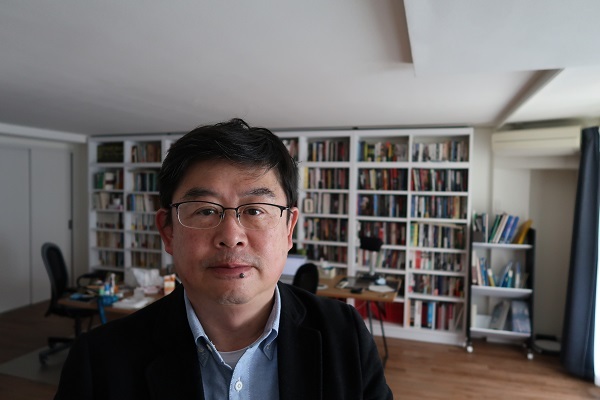Iran-Saudi Agreement: Analyst Says US Policy in ME to Become Narrower

Iran and Saudi Arabia announced an agreement on Friday to resume diplomatic ties and reopen embassies after seven years. Many countries across the world have welcomed the agreement. There have been different opinions about its aspects and effects but most of them point to the potential of the rapprochement for increasing stability in the region and in particular, putting an end to war in Yemen.
To further discuss the issue, IQNA has talked with Professor Shuji Hosaka, the Board Member of the Institute of Energy Economics, Japan (IEEJ) and President of Japan Association for Middle East Studies (JAMES).
Following is the full text of the interview:
IQNA: In your opinion, what are the effects of Tehran-Riyadh détente on the Middle East region, especially on the war in Yemen?
Hosaka: The conflict in Yemen is very complex and multifaceted. There are many obstacles in achieving peace in Yemen, but the external interferences are very important. Foreign actors, including Iran, Saudi Arabia, and the UAE, have been involved in the conflict in Yemen. Their involvement has complicated the situation and hindered the peace process in Yemen.
IQNA: What effect do you think this normalization of relations between Tehran and Riyadh has on the influence of the United States and Israel in the Middle East?
Hosaka: The normalization of the relations between Iran and Saudi Arabia could potentially have a significant impact on the US and Israeli policies toward the Middle East. China's influence in the Middle East had been limited to economy and energy, but China's mediation of the normalization of relations between the two countries revealed the magnitude of its political and diplomatic influence in the Middle East. This means that the range of choices in the US policy toward the Middle East become narrower.
In addition, Israel, like Saudi Arabia, has an anti-Iranian policy that has brought the two countries closer diplomatically and security-wise. However, Saudi Arabia will no longer have an overtly anti-Iranian policy, and Israel will lose friends in its Iranian policy.
IQNA: Can it be said that this re-establishment of political relations between Iran and Saudi Arabia is a sign of Israel's failure to normalize relations with Riyadh?
Hosaka: My answer is Yes and No. With the same threat perception, Israel has approached Saudi Arabia, developing the relations in terms of security. Prime Minister Netanyahu have said that normalizing the relations with Saudi Arabia is a top priority. However, Saudi Arabia has supported the “two states solution,” based on the Arab Peace Initiative” and denied the normalization of the relations with Israel. Saudi Arabia will not abandon its security ties with Israel until mutual distrust between Saudi Arabia and Iran is dispelled.
IQNA: What effect will the agreement between Iran and Saudi Arabia have on the balance of power in the Middle East?
Hosaka: The agreement will contribute to stabilizing the Middle East in terms of regional conflicts. Moreover, the decline of the US and the rise of China in the Middle East will become more apparent than ever.
IQNA: Some believe that this measure is a prelude to more important events in the Middle East. What do you think will be the next influential event in the region?
Hosaka: If the normalization of relations between Iran and Saudi Arabia would allow both countries to exert positive influence on Yemen's warring factions, it could go a long way towards a political solution of the Yemeni conflict.
Interview by Mohammad Hassan Goodarzi
The views and opinions expressed in this interview are solely those of the interviewee and do not necessarily reflect the view of International Quran News Agency.



